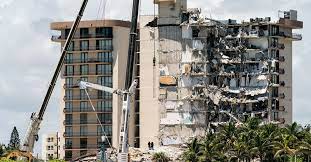
Breaking News
 No One Does It Like Johnny Carson | Mark Malkoff #470 | The Way I Heard It
No One Does It Like Johnny Carson | Mark Malkoff #470 | The Way I Heard It
 Webb is ready - the open source tool that will decode the Epstein files for EVERYONE
Webb is ready - the open source tool that will decode the Epstein files for EVERYONE
 Trump administration ending Minneapolis immigration Operation Metro Surge
Trump administration ending Minneapolis immigration Operation Metro Surge
 TUMBLER RIDGE MASSACRE: The Trans Shooter Media TRIED TO HIDE...
TUMBLER RIDGE MASSACRE: The Trans Shooter Media TRIED TO HIDE...
Top Tech News
 Drone-launching underwater drone hitches a ride on ship and sub hulls
Drone-launching underwater drone hitches a ride on ship and sub hulls
 Humanoid Robots Get "Brains" As Dual-Use Fears Mount
Humanoid Robots Get "Brains" As Dual-Use Fears Mount
 SpaceX Authorized to Increase High Speed Internet Download Speeds 5X Through 2026
SpaceX Authorized to Increase High Speed Internet Download Speeds 5X Through 2026
 Space AI is the Key to the Technological Singularity
Space AI is the Key to the Technological Singularity
 Velocitor X-1 eVTOL could be beating the traffic in just a year
Velocitor X-1 eVTOL could be beating the traffic in just a year
 Starlink smasher? China claims world's best high-powered microwave weapon
Starlink smasher? China claims world's best high-powered microwave weapon
 Wood scraps turn 'useless' desert sand into concrete
Wood scraps turn 'useless' desert sand into concrete
 Let's Do a Detailed Review of Zorin -- Is This Good for Ex-Windows Users?
Let's Do a Detailed Review of Zorin -- Is This Good for Ex-Windows Users?
 The World's First Sodium-Ion Battery EV Is A Winter Range Monster
The World's First Sodium-Ion Battery EV Is A Winter Range Monster
 China's CATL 5C Battery Breakthrough will Make Most Combustion Engine Vehicles OBSOLETE
China's CATL 5C Battery Breakthrough will Make Most Combustion Engine Vehicles OBSOLETE
A Few Things About Reinforced Concrete High-Rise Condos

The second most remarkable thing about the sudden collapse of the Florida condo building was the rush to assure everyone that this was a one-off catastrophe: all the factors fingered as causes were unique to this building, the implication being all other high-rise reinforced concrete condos without the exact same mix of causal factors were not in danger.
Before we accept this conveniently feel-good conclusion, there are a few things we should consider about reinforced concrete high-rise condos.
1. This may seem too obvious to be important, but concrete is a heavy material. Fill a 5-gallon bucket with wet concrete, let it cure (harden) and then pick the bucket up–if you can.
2. Conventional concrete is not water-proof; it absorbs moisture. Construct a concrete wall against an excavated cliff of damp earth saturated with underground moisture and the concrete wall will be damp unless it is sealed essentially perfectly–no easy task.



